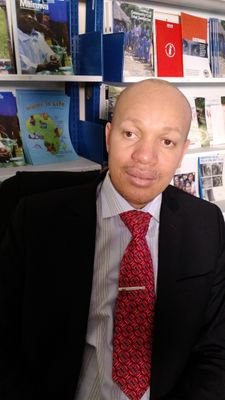Precisely, NaijaAgroNet gathered, that October 30 marks two decades of global action against malaria as the RBM Partnership to End Malaria as they celebrate 20th anniversary and launched new media fellowship to build on achievements which to date have contributed to saving more than 7 million lives and preventing over 1 billion malaria cases.
Originally established as Roll Back Malaria (RBM) in 1998 by the United Nations Development Programme, UNICEF, the World Health Organisation (WHO) and the World Bank, today the RBM Partnership to End Malaria is the largest global platform for coordinated action against malaria. Through increased funding, distribution of millions of lifesaving interventions and by introducing innovative and improved tools, the Partnership has played a key role in global efforts that have reduced malaria deaths by over 60%, contributed to an 1,000% increase in malaria funding, and added an estimated US$2 trillion to the economies of malaria affected countries.
Looking towards future action, the RBM Partnership to End Malaria is now launching a first-ever media fellowship, open to journalists from the 11 countries in the world with the highest burden of malaria, according to the most recent World Malaria Report.
Successful candidates will meet with some of the world’s leading health and malaria experts to understand the key challenges and opportunities for ending malaria in their home countries. According to latest WHO data, 10 countries in sub-Saharan Africa and India represent over 70% of the world’s malaria cases. The RBM Partnership will provide support to the selected fellows with their projects and features relating to malaria for one year. Journalists will be encouraged to explore their own interests within the field, and to delve deeper into solutions that could be employed to meet their country’s challenges from the malaria burden. The closing date for applications is 31 January 2019.
The chief executive officer (CEO) of RBM Partnership to End Malaria, Dr Kesete Admasu, said the global partnership over the past two decades has significantly reduced malaria deaths and cases, saving 7 million lives.
“This progress has allowed us to set our sights on ending this preventable disease for good. As we celebrate our 20th anniversary, we look toward what we can accomplish in the next 20 years, including inspiring new audiences about the historic opportunity to end malaria. This media fellowship will offer much-needed support to journalists in the highest burden countries who want to shine a light on the impact malaria has on their communities and the urgent need for citizens and country leaders to drive further progress against the disease, especially at a time when cases are on the rise,” he said.
NaijaAgroNet also gathered that events marking the 20th anniversary will also reflect the achievements of the past two decades and look ahead towards upcoming opportunities for malaria elimination.
The celebrations, he further said, will conclude an event in Maputo, Mozambique that coincides with the annual launch of the WHO World Malaria Report and a new High Burden to High Impact: Targeted Malaria Response, on 19th November.
“To highlight the key successes against the disease over the past two decades, the RBM Partnership have created a new video of these achievements, which is available here,” he said.
Nenye Dom/GEE
... Linking agrobiz, sustainable environs, people & technology



















